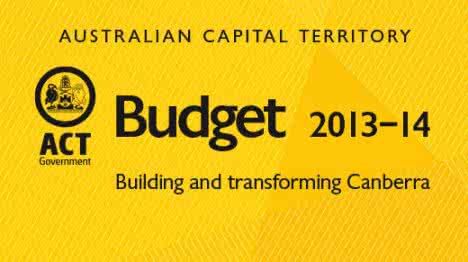
The ACT region is home to a remarkable diversity of arts practice. (Image of Skywale sourced from WikiCommons)
The following comprises the Childers Group’s formal written submission to the ACT Government’s review of its arts policy, which is currently taking place. It was submitted to the ACT Government on 24 April 2015.
Fair wages for artists and arts workers:
Most Australian artists and arts workers receive very low rates of pay, as evidenced by the Australia Council’s Don’t Give Up Your Day Job: An Economic Study of Professional Artists in Australia study, and regrettably the ACT region is not immune from this problem. In essence, artists and arts workers are rarely recognised as professional service providers. In the ACT, key arts organisations compete with two levels of public service, which are able to pay much higher rates of pay. While it is true that key arts organisations are responsible for setting salaries and pay rates, limited funding and other income means that salaries are rarely able to be pegged at competitive levels, meaning staff leave key arts organisations for the public service, or leave the ACT region entirely. In relation to practising professional artists, we recognise that artsACT has for a long time advocated for publicly funded arts projects to incorporate the appropriate level of artist fees, and we strongly suggest artsACT continues to do so.
Recommendation: the principle of fair rates of payment for artists and arts workers is reinforced in the new arts policy, and that artists and arts workers are recognised as professional service providers.
A regional approach to arts development:
The ACT region is home to a remarkable diversity of arts practice, and for many years ACT artists and arts workers have been moving to the neighbouring areas order to remain in the region (to maintain networks and access to tertiary institutions/facilities etc). This has become especially prevalent as the cost of living increases dramatically in the ACT while adjacent regional communities are able to offer more affordable options, especially in relation to home and workshops/sheds. Recognising the opportunities for artists to better manage their costs by moving to regional communities is one way the ACT will be able to keep artists from moving to the larger cities. The Childers Group acknowledges that the ACT Government, through artsACT, has a long history of recognising artists who live ‘over the border’ and are able to demonstrate a contribution to the ACT community, but this position needs to be reconfirmed and reinforced in light of current economic pressures. Further, there is an opportunity for artsACT and artsNSW to collaboratively develop a funding program that specifically supports cross-border arts relationships and programs.
Recommendation: the ACT Government recognises the value of mutually beneficial relationships between the ACT and neighbouring regional communities, and that through the new arts policy these relationships are recognised, supported, and encouraged.
Ongoing support for practising professional artists through the Project funding category:
The ACT’s key arts organisations are integral to the development of the arts sector, but they cannot provide all the services, support and opportunities that professional practising artists require. Practising professional artists across all sectors are often at the forefront of practice and in turn are high-profile advocates for the region. One of the key sources of financial support is the ACT Arts Fund’s Project funding category. However, over the course of the last 10-15 years the amount of funding available in the Project category has reduced while costs to deliver projects have increased.
Recommendation: the ACT Government commits to ongoing support for practising professional artists through the Project funding category, and investigate ways to increase the level of support available.
Ongoing support of arts service organisations:
Arts service organisations provide professional development opportunities for the sector, facilitate connections, support brokering (business and the arts), and provide links to key partnerships for artists. In the last decade or so, the ACT region has lost a number of such organisations – Muse/Artlook and Canberra Arts Marketing. Service organisations might also be advocates for particular art forms, for example Ausdance ACT and the ACT Writers Centre. Consistent with previous correspondence with the ACT Government on this matter, the Childers Group does not wish to make comment on individual funding decisions. However, the Group is concerned that the ACT region’s arts sector is currently without over-arching organisations and support, despite the ACT Governments policy of arts hubs, and this might be exacerbating a sense of isolation.
Recommendation: the ACT Government recognises the value of arts services organisations, and there be consideration of a funding program specifically designed to support service organisations.
A whole-of-sector approach to arts development:
Currently there is limited communication, relationship and mobility between arts organisations, leading to stagnation in the skills pool, wasting time through duplication of administration tasks such as contract development, and artists and arts workers looking outside the ACT to find their next job. As noted elsewhere in this submission, this situation is occurring despite the ACT Government’s policy of arts hubs, which appears to focus on capital works rather than building whole-of-sector relationships. The arts policy review should consider how artsACT can play a facilitating role in encouraging connections between ACT arts organsitions, either by dedicated funding initiatives, formal professional development opportunities, and/or through informal networking opportunities. (The Childers Group has played a role in this regard, and we will continue to do so, but our resources are severely limited.) There is also a need for government-supported initiatives that can increase the connection between ACT organisations and the national cultural institutions.
Recommendation: a renewed emphasis on facilitating partnerships and communications between arts organisations, and for the ACT Government to assist ACT arts organisations build relationships with the national cultural institutions.

For many years there have been very real barriers between ACT Government directorates and agencies; all ACT Government directorates and agencies should be required to show how each contributes to a vibrant arts sector. (Image courtesy of WikiCommons)
Eliminate ‘silo thinking’ within the ACT Government:
For many years there have been very real barriers between ACT Government directorates and agencies – for example, arts organisations who try to develop programs with the Education Directorate are often met with a wall of bureaucracy, complex processes, silence, or a combination of all three. If the ACT Government believes that engagement and participation in the arts are essential and should be at the centre of ACT community life, all ACT Government directorates and agencies should be required to show how each contributes to creating and developing a vibrant arts sector for the ACT community – this should be done through the annual report process.
Recommendation: ACT Government directorates and agencies work collaboratively to develop and deliver arts programs and projects, and that these are formally – and publicly – reported on an annual basis.
Art form development:
While many of the ACT’s key arts organisations actively develop their respective art form, the Childers Group is concerned that art-form development is not emphasised in the current arts policy. The Group suggest that all applicants to the ACT Arts Fund – organisations, groups, and individuals – are required to demonstrate how their proposed activity or activities demonstrably develops art forms.
Recommendation: a renewed emphasis on art form development in all aspects of the ACT Government’s support of arts activity, and specifically through the new arts policy.
Long-term thinking:
The ACT Government does not currently have a stated and publicly available long-term vision of the arts and key questions are not addressed. For example, is the number of key arts organisations expected to grow, reduce, or stay the same? Will organisations be assessed as part of a vibrant arts ecology, or only in comparison to other organisations whose funding is ‘up’ that year? Are organisational mergers planned? How does the ACT Government plan to support a skills base in Canberra that ensures sufficient staff and board members to maintain effective governance and high performance in such a wide variety of organisations? And is artsACT committed to maintaining – ideally increasing – the proportion of the ACT Government budget allocated to the arts and the investment per capita?
Recommendation: the ACT Government takes a long-term – i.e. 10-year – approach to developing the arts and community inclusion and shares that vision with the sector.
Reducing barriers to live music
Live music events continue to be hampered in the ACT. Currently, the deck is stacked against those looking to put on such events and appears to be weighted in favour of residents who make complaints about ‘noise’ associated with such events. Music in its many variations is never going to thrive with the number of restrictions currently placed on putting on an event in the ACT. The Childers Group acknowledges that some of the regulations and rules currently in place are designed to protect organisers and patrons (for example, public liability insurance), but many are unnecessary and seem to shift during the course of trying to put on an event. The Childers Group is aware of at least two local festivals that have recently been cancelled due to the regulations. Musicians and producers of contemporary arts events and festivals have advocated for a more entrepreneurial approach by the ACT Government, especially in relation to relaxing regulations which can be ambiguous and overly restrictive. The vibrant cafe/bar/music scenes that flourish in other major cities are unlikely to flourish in the National Capital unless more sympathetic and smart thinking is applied to reviewing the regulations.
Recommendation: the ACT Governments commits to the importance of live music in the ACT region, and that live-music promoters be provided as much assistance as possible, for example through ‘how to’ guide to putting on an event for emerging promoters.
Retain meaningful peer assessment:
The ACT Government has a longstanding commitment to peer-assessment of applications to the ACT Arts Fund. However, the Childers Group is concerned the ACT Government appears to be moving to a hybrid model where peer assessment is eroded and the sector feels decisions are being made without informed and considered peer input.
Recommendation: the ACT Government recommits to meaningful peer assessment of grant applications, and that this commitment is made explicit in the new arts policy.
Audience development:
Arts organisations, festivals, projects and artists continue to find it a challenge to develop audiences. Further, in these current times when many in the community are struggling due to a compressed economy, arts consumers are carefully considering how they will spend their arts dollar. For organisations and independent producers, audience development and building engagement in the arts requires marketing support and expertise, which in turn needs funding and support. In some ways digital resources such as social media have become essential tools, but they need to be used in an informed manner.
Recommendation: audience development is recognised as a priority and that programs are put in place to assist artists and arts workers increase and diversify their audiences.
Private sector support:
ACT Government support of the arts sector is greatly appreciated but there is a need to increase private-sector support, including through philanthropy. In recent years there has been some support in this regard through organisations such as the local office of the Australian Business Arts Foundation. However, with Abaf becoming Creative Partnerships Australia and closing its ACT office there is currently no support available to organisations or groups who wish to increase private-sector income – this despite the ACT having a healthy corporate sector.
Recommendation: the ACT Government commits to providing professional support to key arts organisations (in the first instance) in order to building private-sector income and support.



